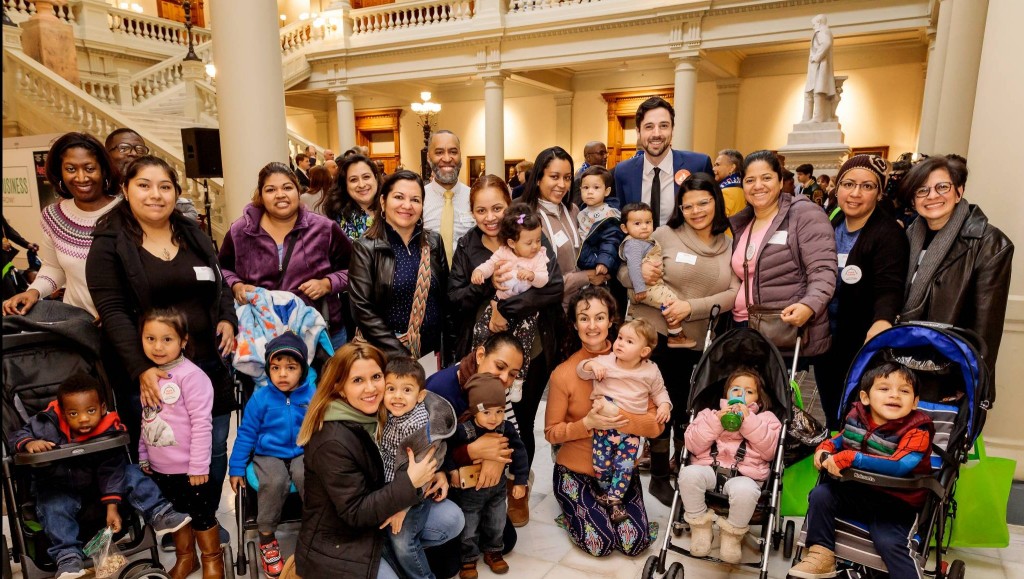After Election Day, It’s Time for Leaders to Focus on Popular Early Childhood Education & Family-Friendly Policies

By: Mindy Binderman for Saporta Report
Georgia, more than any time in recent memory, is one of the nation’s hottest political battlegrounds. The Presidential candidates made multiple visits to the state recently, while voters were inundated with campaign ads and media coverage about the 2020 election.
But after Election Day, our newly elected members of Congress and the Georgia General Assembly will stop campaigning and start legislating. And now more than ever, Georgia voters want their leaders to focus on early childhood education and policies that support working families.
According to a statewide poll GEEARS commissioned earlier this fall, support for early learning is consistently strong and overwhelmingly bipartisan. The poll, conducted by McLaughlin & Associates and Frederick Polls, found that among a group of 600 likely Georgia voters, early care and education were among the most pressing issues for them, along with the economy, health care, and taxes.
The poll results also showed that support for family-friendly policies is consistent across groups, no matter the political party, gender, and whether or not they have a young child at home. A clear majority of voters want candidates and policymakers to address gaps in access and quality. Learn more about the results at GEEARS.org/polling.
“If you looked at this poll, you looked at a perfect example of where Democrats and Republicans agree,” pollster Keith Frederick said about the importance of early education and family-friendly policies. “If our country’s looking to come together and looking for issues which we can come together on, this issue’s a perfect one because voters get it.”
He added: “This could be one of those issues that rises into ascendancy in America.”
Georgians recognize the importance of early childhood education and family leave, especially as we all cope with the impacts of the pandemic. Support of paid family leave is strong for a variety of circumstances, including for the birth or adoption of a child, child care during emergency, or caring for oneself or a family member during an illness.
When asked how the federal government should respond to the COVID-19 crisis, access to child care is top-of-mind for a large majority of voters, who prioritize it at levels similar to other critically important issues like job creation, small business support, and health care. In fact, 86 percent indicated support for targeted financial assistance specifically for the child care industry. Ninety-two percent of Democrats and 81 percent of Republican voters support child care industry assistance.
When it comes to early childhood education, Georgia voters support a variety of specific policies, including expanding access to high-quality, affordable child care for infants and toddlers. The poll found that more than eight out of 10 households, both with young children (85 percent) and without (86 percent), support greater access to child care for infants and toddlers, while 85 percent of men and 88 percent of women support it.
In addition, 91 percent support Georgia’s free, Lottery-funded voluntary Pre-K. This represents the highest level of support for lottery-funded pre-K since GEEARS began polling voters about Pre-K 10 years ago.
As state legislators and our Congressional delegation consider budget issues, they should keep in mind that support of for child care and Georgia Pre-K is important to an overwhelming majority of Georgia voters. This is consistent regardless of gender, party, age, race or even region.
“Child care is not a niche issue, it’s mainstream, it’s very salient,” said Rob Schmidt of McLaughlin & Associates. “In terms of the issues that are driving the political debate, child care is right up there at the top. I’m not accustomed to seeing numbers this high and positive. The case is very clear.”
The case is indeed clear, and it’s one GEEARS and its partners will be making, on child care and a variety of early childhood issues, to our leaders in the months to come.